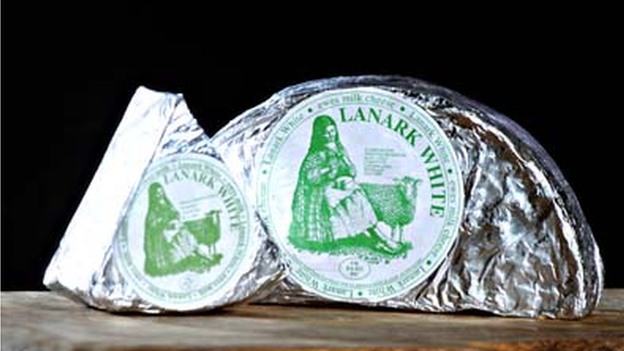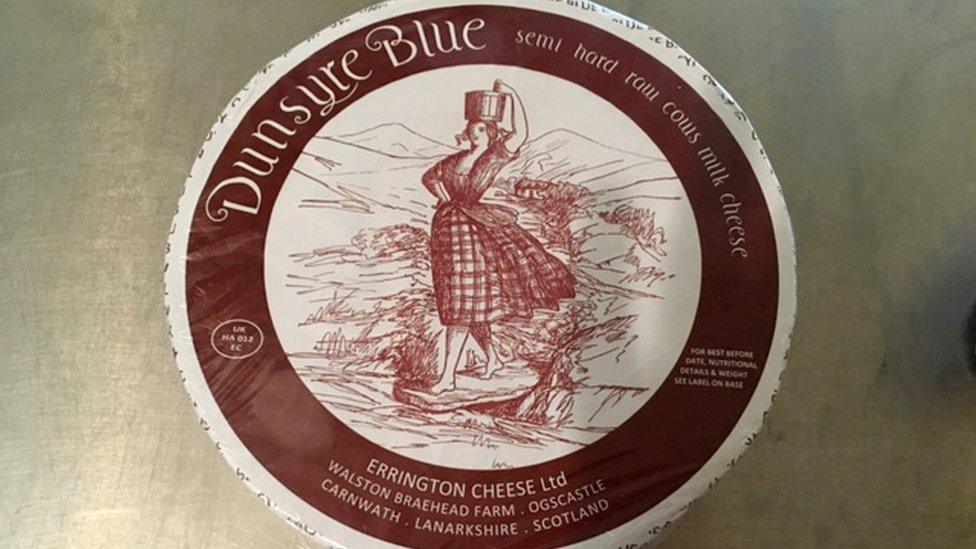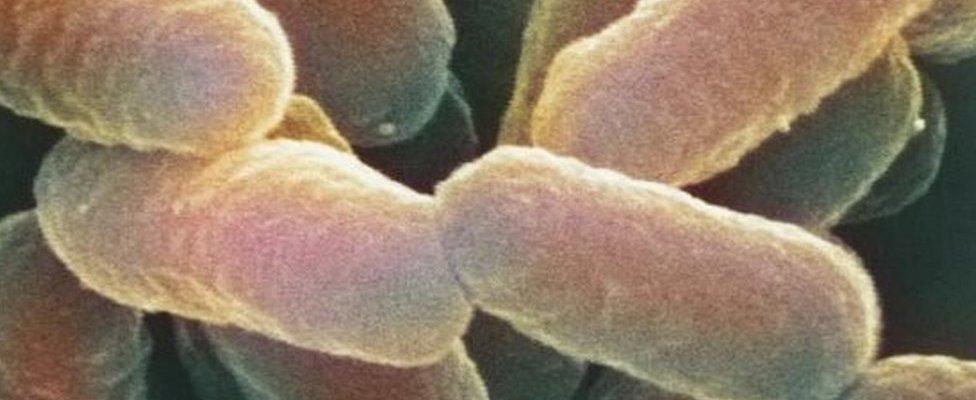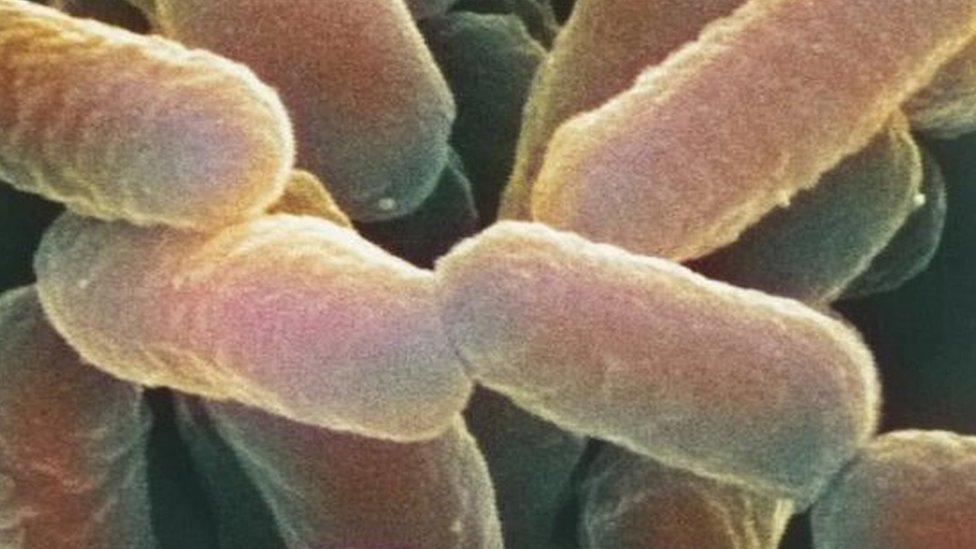New cheese alert after child's E.coli death
- Published

A new alert has been issued after cheese tested positive for the E.coli bug that recently killed a child.
Food Standards Scotland has ordered the withdrawal from sale of batch G14 of Lanark White ewe milk cheese.
Earlier it emerged that the child who died during a recent E.coli outbreak was a three-year-old girl from Dunbartonshire.
The cheese's manufacturer, South Lanarkshire-based Errington Cheese, said it was conducting its own tests.
The young girl who died was among 20 confirmed cases of E.coli O157 which were all identified in July. Eleven of the cases required hospital treatment.
Health experts have previously investigated possible links to Dunsyre Blue cheese - also made by Errington - but until now there have been no positive tests.

Health officials have already investigated possible links to Dunsyre blue cheese
In a statement on Saturday, Food Standards Scotland said: "A sample from a batch of Lanark White submitted for testing by South Lanarkshire Council has tested positive for E. coli O157.
"Although this organism may not carry shiga toxins, it is associated with human disease in the UK, so this cheese is a potential risk to health.
"FSS has issued a FAFA [Food Alert for Action] calling for this product to be immediately recalled from sale."
Shiga toxins are poisons produced by some but not all types of E.coli variants.
The order to withdraw the cheese from sale was made after Errington refused to issue its own voluntary recall.
The company said the cheese had been on the market for three weeks with no reported cases of illness.
In a statement on its website, it said: "When we were told of the presumptive E. coli 0157 result we immediately consulted experts in dairy microbiology.
"The experts told us they were confused and concerned by the testing methodology adopted by the laboratory.
"We have given careful consideration to this and to the fact that the cheese has been on the market for three weeks now with absolutely no reported incidence of illness.
"We have arranged for the sample of the same cheese tested by the authorities to be tested and the results will be ready on Monday when we will review the situation."


What is E. coli?
E. coli is a type of bacteria commonly found in the intestines of humans, livestock and other animals, and is excreted in faeces.
The O157 strain is a leading cause of food-borne illness and can be particularly dangerous.
The bacterium is generally spread by contaminated food and water but also can be passed among humans.
In people with weak immune systems, particularly young children and the elderly, the infection can cause serious kidney damage, blindness, paralysis and sometimes death.
Symptoms can include abdominal cramps and diarrhoea that may be bloody and people may also experience fever and vomiting.

Earlier more details emerged about the child who died when prosecutors confirmed that an investigation had begun into the circumstances of her death.
A Crown Office spokesperson said: "The Procurator Fiscal has received a report in connection with the death of a three-year-old girl in Dunbartonshire on 2 September 2016.
"The investigation into the death, under the direction of Scottish Fatalities Investigation Unit (SFIU), is ongoing and the family will continue to be kept updated in relation to any significant developments."
Three batches of Dunsyre Blue cheese have already been recalled since the E.coli outbreak.
Health Protection Scotland previously said that epidemiological investigations had "identified Dunsyre Blue cheese as the most likely cause of the outbreak".
It added: "Despite extensive investigation, including looking for other possible food sources, no other link to a majority of cases could be established."
Errington Cheese disputed the link, maintaining there was no conclusive evidence linking its products to the outbreak.
In a statement on its website last month it said that testing had shown it to be "completely clear of E. coli O157, external".
- Published5 September 2016

- Published8 September 2016
